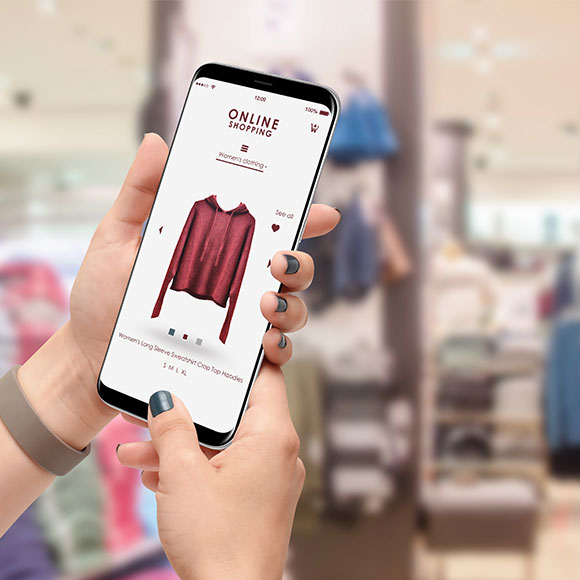It’s not enough to just have a website. You must also give potential customers a reason to visit your site. We believe quality content combined with a sound digital and sales strategy is the key to reaching customers online in a very competitive marketplace.
Search Engine Marketing (SEM) also know as paid search is one of the most effective ways to reach the right customer, at the right time, to familiarize them with your brand and begin the consumer journey.
When building a display campaign, we consider the ideal customer for the message and/or product. This is usually based on data that we’ve collected from your website, social media pages, or data from industry research. The consumer data is key to building the right persona groups to target.
We look at the digital behavior, pshychographic, and demographic details of the ideal person to understand the consumer intent and place that persona at the center of our strategy. With the right persona groups identified, we’re able to build a keyword database along with attributes to target the right websites where your potential customer will visit. Display campaigns are a great way to get your ideal customer familiar with your brand.
Depending on the goals set for your digital strategy determines how we incorporate display and PPC into the plan. The purpose of PPC is to reach consumers who are ready to buy right now. These folks are actively searching for products and services, which means these consumers would be considered quality leads. They are motivated to buy.
Before we execute a PPC campaign, we do an analysis of your website. This is important because the quality score of your website can help increase the success rate of the campaign. We then consider the business outcomes set for the campaign and build a plan that supports current and future revenue goals. This allows us to tailor messaging to drive customers to your website.



Paid search works best when Search Engine Optimization (SEO) practices are included in the strategy. Using SEO best practices, we can develop a streamlined content strategy that focuses on your sales and brand messaging while taking into consideration the consumers’ need.
We engage in extensive keyword research that’s relevant to your brand and competitors. Then we optimize SEM campaigns and website SEO to deliver content that will drive engagement and increase conversions.
As part of our process we consider the future intent of the consumers actions. We use that information to properly target relevant topics and themes with our messaging.
When executing a paid search campaign, the key to success is ongoing optimization. Paid search can be costly and is more expensive than other forms of digital advertising.
So, the real value comes from understanding how to optimize campaigns to increase conversions and personalize ads to targeted groups who are actively searching for that product or service.
We consistently review how we manage campaign budgets, adjusting when needed. We assess keywords and keyword phrases for performance based on search query reports and optimize lading pages for performance. These are just a few steps we take to ensure the success of paid search campaigns.
Consistently researching keywords based on relevant search query reports and campaign performance.
Ongoing review of key performance indicators (KPI) to ensure business outcomes are aligned with campaign goals.
Ongoing review of budget to improve campaign performance.
Optimizing landing page content and user flow for post click activity.